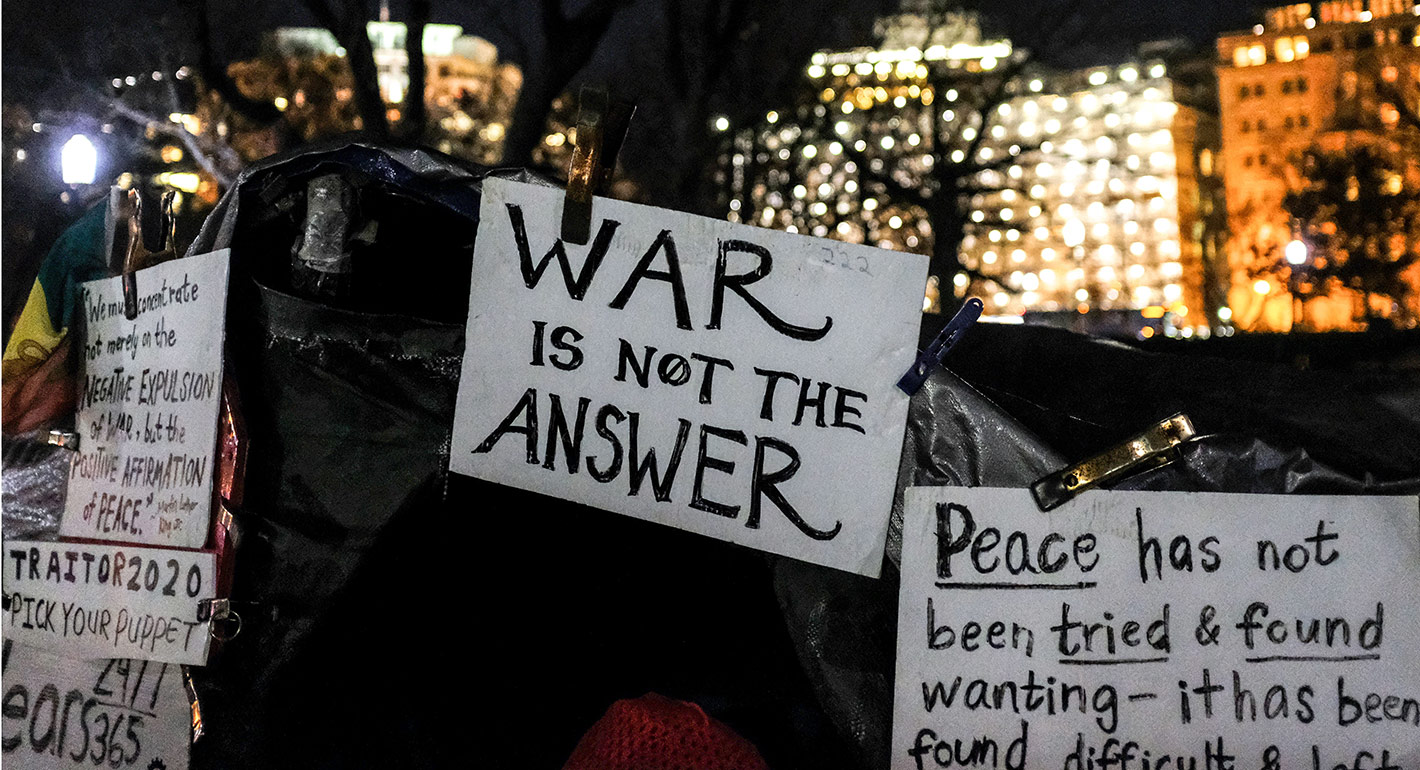Many Americans are breathing a collective sigh of relief as the immediate risk of a conventional war between the United States and Iran appears to be receding. Iran’s January 7 missile salvo against two Iraqi installations housing U.S. soldiers in response to the January 3 assassination of Iranian major general Qassem Soleimani of the Islamic Revolutionary Guard Corps, which may have been designed to avoid American casualties, may satisfy the Iranian leadership’s short-term need to save face without provoking additional action by U.S. President Donald Trump. Iranian Foreign Minister Javad Zarif’s statement that Iran had “concluded proportionate measures” in retaliation for Soleimani’s death was met by an uncharacteristically nonchalant tweet from Trump declaring that “all is well.” Trump’s January 8 national address seemed to confirm that the United States was not contemplating a military response to Iran’s attack, creating hope that both sides want to de-escalate a dangerous standoff.
Iran May Not Be Finished Yet
Unfortunately, it is not at all clear that Iran’s missile barrage represents the totality of the country’s response to the killing of one of its most important leaders. At the very least, Iran will intensify efforts to oust the United States from Iraq and neighboring Syria, as Supreme Leader Ali Khamenei asserted in a January 8 speech. While the wisdom of a long-term U.S. presence in these countries is debatable, American forces continue to play an important role in preventing the reemergence of the self-proclaimed Islamic State in Iraq and Syria. And even those advocating for the withdrawal of U.S. forces should acknowledge that it is better to do so in an orderly and well-thought-out manner, not under political or military duress.
Worse, it remains a distinct possibility that Iran will not be satisfied until it avenges Soleimani’s death by killing Americans. Iran’s fabricated account of American deaths in the missile attack circulated via state media may help the regime to save face at home, but it does not provide any deterrence vis-à-vis the United States. Iran could calculate that, if it does not impose a direct cost on the United States for the assassination, it will be open season on Iranian leaders. Short of launching another conventional attack on U.S. forces, Iran could resort to asymmetric warfare, directing its proxies to conduct terrorist attacks against U.S. soldiers, diplomats, or civilians.
Trump Has Made Things Worse
Even if these scenarios do not come to pass, however, the Trump administration’s “maximum pressure” campaign already severely undermined U.S. interests. The Joint Comprehensive Plan of Action (JCPOA), or “Iran deal,” which foreclosed Iran’s paths to a nuclear weapon for years, may have been fatally damaged as Iran sheds more of its commitments in response to U.S. violations. Iran’s malign regional behavior, which admittedly continued while the JCPOA was in full force, has only escalated.
The U.S. military has been forced to suspend counter–Islamic State operations in Iraq to focus on protecting its troops. U.S.-European relations have been badly bruised, with European leaders muttering about going their own way. Regional energy supplies look increasingly vulnerable, causing a rise in global oil prices to the detriment of the American consumer. And, of course, civilians in the region, especially the Iraqis, continue to suffer in circumstances largely not of their own making.
Respite May Be Brief
Americans are nevertheless right to be relieved at the apparent de-escalation between the United States and Iran. Almost regardless of what happens next, it remains the best possible outcome. But that underscores just how disastrous U.S. foreign policy has become under Trump. He has created an environment in which it is impossible to advance U.S. interests. All the United States can do is minimize and mitigate losses.
The only way to break out of this action-reaction cycle is for Trump to abandon his ill-conceived policy and try to do what he loves most: make deals. It may prove impossible to return to the JCPOA, but two things are clear about Trump’s pressure campaign. One, it will not produce a better nuclear deal with Iran. Two, it does not make it any easier to deal with other aspects of Iranian behavior. The Soleimani assassination was no victory for Trump, and “maximum pressure” has been an abysmal failure. Unless Trump changes course, our fleeting relief will soon be eclipsed by the next crisis.
